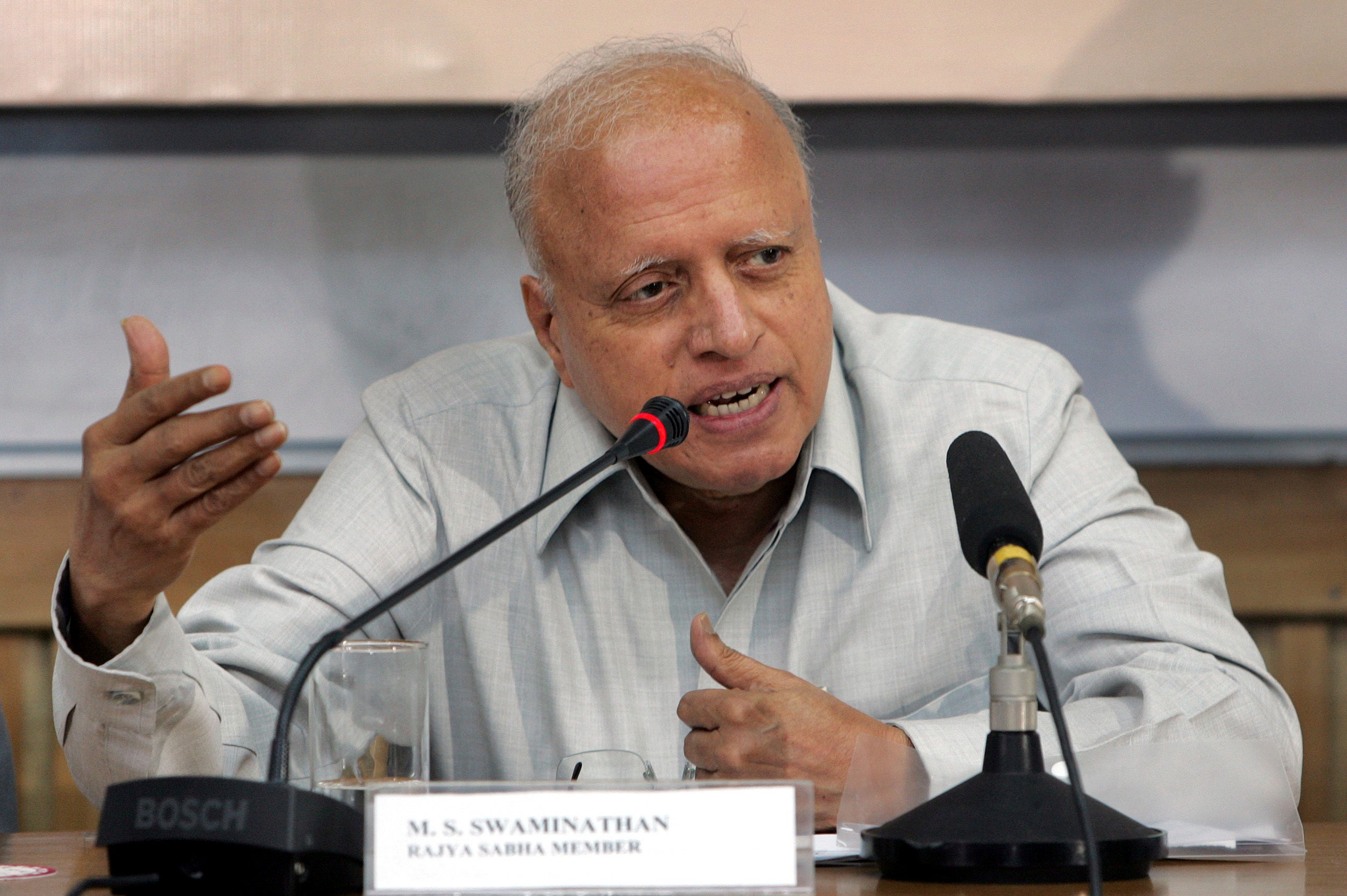M.S. Swaminathan, who helped India's farming to grow at industrial scale, dies at 98
Mankombu Sambasivan Swaminathan, a renowned agricultural scientist who revolutionized India’s farming and was a key architect of the country’s “Green Revolution”, has died at 98

Your support helps us to tell the story
From reproductive rights to climate change to Big Tech, The Independent is on the ground when the story is developing. Whether it's investigating the financials of Elon Musk's pro-Trump PAC or producing our latest documentary, 'The A Word', which shines a light on the American women fighting for reproductive rights, we know how important it is to parse out the facts from the messaging.
At such a critical moment in US history, we need reporters on the ground. Your donation allows us to keep sending journalists to speak to both sides of the story.
The Independent is trusted by Americans across the entire political spectrum. And unlike many other quality news outlets, we choose not to lock Americans out of our reporting and analysis with paywalls. We believe quality journalism should be available to everyone, paid for by those who can afford it.
Your support makes all the difference.Mankombu Sambasivan Swaminathan, a renowned agricultural scientist who revolutionized India’s farming and was a key architect of the country’s “Green Revolution” died Thursday. He was 98.
Swaminathan died at his home in southern Chennai city after an age-related illness, news agency Press Trust of India reported.
In the late 1960s and 1970s, the agriculturalist was instrumental in bringing industrial farming to India, making the country self-sufficient in food and reducing widespread hunger. India’s “Green Revolution," as it was known, turned the northern states of Punjab and Haryana into breadbaskets for wheat and rice production, helping low-income farmers.
The initiative, now dubbed as a transformational era in Indian agriculture, introduced high-yielding cereal varieties and expanded use of irrigation and fertilizers. Grain production increased exponentially, at a time when India was beset with widespread starvation.
For his work, Swaminathan was named one of the 20 most influential Asians of the 20th century by Time magazine.
Swaminathan also held administrative positions in various agricultural research institutes in India and served as a top planner at the Indian Council of Agricultural Research between 1972 and 1979. He received the Padma Shri, one of the Indian government’s top honors, in 1967.
Swaminathan also served as a lawmaker in India’s upper house of the Parliament.